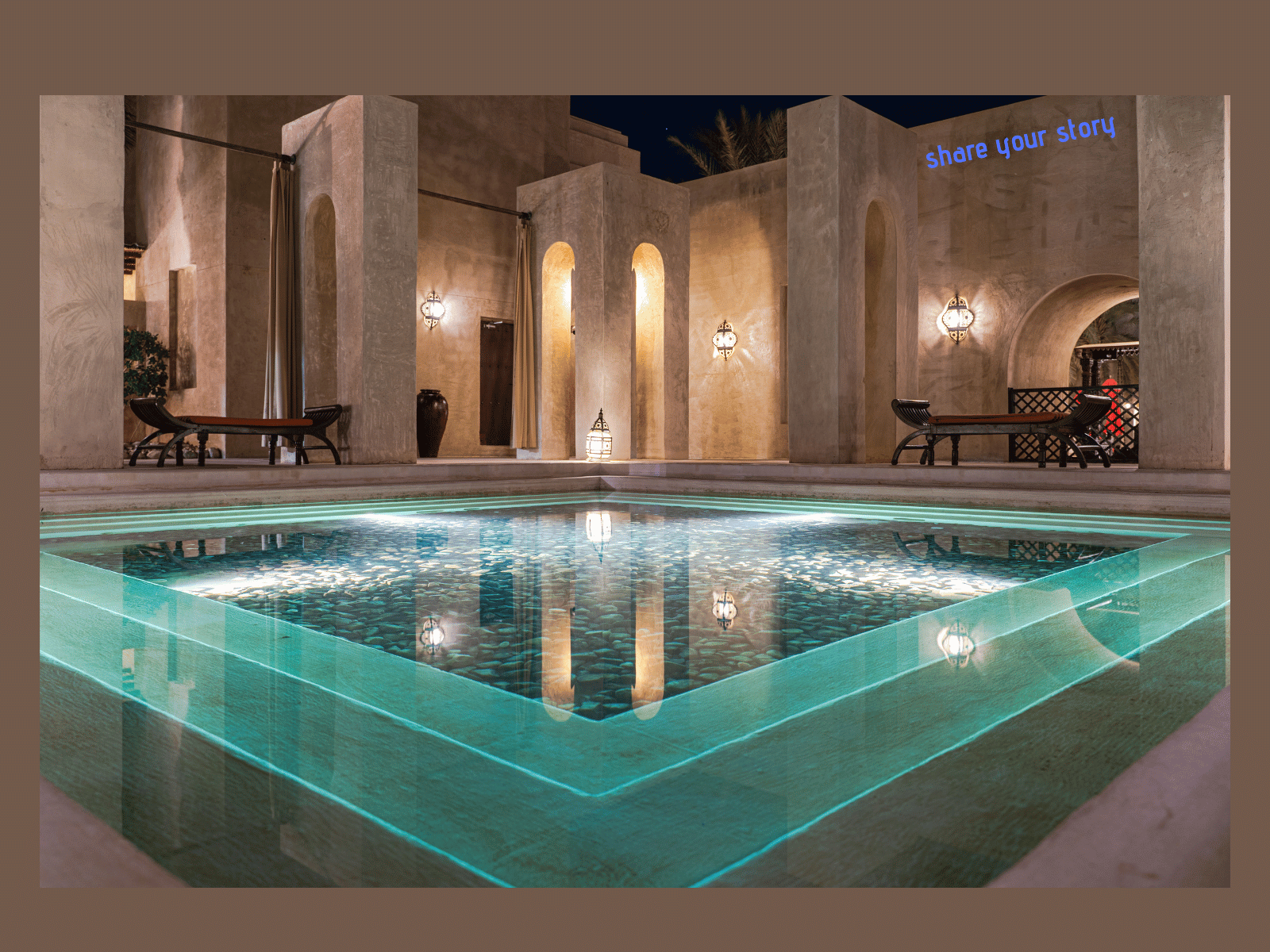The power of storytelling in travel marketing
Let's be real for a second. In today's highly competitive travel industry, simply listing your hotel's amenities and showing a few nice photos isn't enough. Even if your hotel has the most comfortable beds, a fantastic pool or an amazing breakfast buffet, if you're not telling a story, you're just another option among many. Honestly, that's not going to get you noticed.
People aren't just booking a room; they're looking for an experience. They're imagining a feeling, a memory, a break from their routine. So, how can you tap into these desires? How can you make your hotel more than just a place to sleep and instead a key part of their next great trip?
The answer is storytelling.
This isn't about making things up. It's about creating a compelling and authentic narrative that connects with your ideal guests on an emotional level and encourages them to book. Furthermore, authentic storytelling in tourism has emerged as a powerful tool for promoting sustainable practices, achieving a balance between growth and conservation, and encouraging meaningful contributions to local communities. It's about enhancing the tourist experience and fostering a deeper respect for local culture and the environment.
Today, we're going deep into the power of storytelling in travel marketing, specifically for hotels. We'll explore how hotels use storytelling to attract more guests, build strong loyalty, and ultimately, increase revenue, all while contributing positively to their surroundings. So, grab your favourite drink, get comfortable, and let's unlock your hotel's full narrative potential.
Why storytelling? It's all about connection.
The travel industry is emotional by nature. People travel for joy, relaxation, adventure, connection, escape or business — and let's be honest, business travel often requires an emotional release! Traditional marketing often focuses on features: 'We have a pool!' 'Free Wi-Fi!' – which are important, but they don't spark imagination. They don't make people feel anything.
This is where emotional marketing strategies for hotel storytelling can really make a difference. By their very nature, hotels often have a distinct personality. Storytelling enables you to emphasise that personality and create an atmosphere and feeling with which guests can connect even before they arrive.
Consider this: Rather than simply stating that your hotel has a rooftop bar, you could describe the Sunset Lounge, where travellers gather to watch the city lights appear while enjoying unique cocktails named after local landmarks and making new friends. Which description makes you want to visit? Exactly.
When you tell an authentic story, you're not just selling a room, you're selling future memories. You're selling the feeling of waking up to the smell of fresh coffee and sea breeze, the thrill of finding a secret local spot, or the cosiness of an evening by the fire. This emotional connection is what drives bookings, encourages positive reviews and has a significant impact on guest loyalty. Guests who feel a connection don't just visit once; they become repeat customers and your most enthusiastic advocates.
Beyond bookings, authentic storytelling enhances visitor engagement, leading to more meaningful experiences. By sharing genuine, authentic narratives about your hotel's connection to its culture, history and people, you foster a deeper understanding and appreciation of the local environment and community. This isn't just good for business — it's good for the world.
Crafting your hotel's unique story: beyond the physical space
So, you're convinced storytelling is essential. But how do you start to craft compelling hotel narratives for increased bookings? Your hotel's story isn't just about its age or its architecture (though those can be great starting points!). It's about its essence.
Here's where to find your unique story elements:
Your story: Does your hotel have an interesting background? Was it once a grand estate, a historic landmark, or perhaps hosted famous individuals? Or maybe you're the founder of an innovative hotel concept, or your hotel has a special, positive impact on its local community. Sharing your hotel's unique history or founding vision can involve old photos, anecdotes from its past, or even naming rooms or dishes after people or events associated with the property. By narrating your past, you're not just sharing facts; you're contributing to cultural preservation, helping guests understand and appreciate the heritage of your location.
Your location: Is your hotel situated in a bustling city, a quiet countryside, or right by a beautiful beach? What makes this specific location special? What local secrets, traditions, or natural attractions can you weave into your narrative? A hotel in Paris isn't just "in Paris"; it's "your charming Parisian home, steps away from the bakery with the best croissants." By highlighting these local elements, you encourage guests to engage more deeply with the destination, fostering a greater appreciation for the local culture and environment.
Your people: Your staff is extremely important! What unique personalities, skills or stories do they have? The doorman who knows all the local secret spots, the passionate chef who creates protein-rich meals, and the gardener who cares for the organic vegetable garden. Showcase the people who represent you and their strengths in a way that conveys your desired message. For example, if your chambermaid is brilliant at crafts, showcase her talent by displaying her towel art in your VIP rooms. These personal touches add warmth and authenticity, giving you a unique identity that sets you apart. Highlighting your local staff also contributes to economic empowerment within your community, showcasing the real people who make the magic happen.
Your purpose/mission: What motivates your hotel? Is it sustainability, community involvement, art and culture, wellness or adventure? This core purpose can provide a powerful theme for your story, giving you countless ideas for content. For instance, you could talk about your involvement in cleaning up local beaches or your contribution to setting up a tourism school. These actions are strong reflections of your identity and often resonate more deeply than any certificate displayed in your reception area. Stories that highlight your commitment to sustainability or community engagement also educate tourists on the importance of responsible choices, encouraging them to make a positive impact during their travels.
Your unique features: Don't just list them! Provide context! Take the antique clock in the lobby, for example. It has welcomed many generations of guests. What about the rooftop garden? It's a peaceful space designed by a local botanist. The paintings throughout the hotel each tell a little story. Providing your audience with material to stimulate their imagination and evoke emotion is key. This is a unique opportunity to connect with guests before they book.
Your 'why': Why was the hotel created? What dream or vision brought it to life? As you consider the human reasons behind your company, focus on communicating the 'why' in your broader hotel narrative. This is much more important than your individual services. Redefine your hotel's traditional, linear biography. Communicate what motivates you and why you get up every day. Often marketing focuses on the details of 'what' and 'how'. Instead, great marketers and leaders communicate with heart, conviction and soul. By aiming for this more emotional level, your message is more likely to connect with people on an unconscious level.
The goal is to create a memorable narrative for the hotel to encourage direct bookings – one that leaves a lasting impression on potential guests even after they have considered other options. Authenticity is key. Rather than inventing stories, discover them. Every hotel, regardless of its age or size, has a unique story to tell.
Check also: Ditch the OTA drama: 4 simple ways for hotels to boost direct bookings
Digital channels: where your hotel's story reaches your audience
Once you've found your hotel's captivating story, it's time to share it widely! This is how your storytelling truly gets seen and heard by your target audience.
1. Social Media (Instagram, Facebook, TikTok, Pinterest): visual storytelling platforms
These platforms are excellent for how to create unique hotel brand stories for social media.
Instagram: A highly visual platform! Don't just post photos of rooms. Show guests enjoying themselves, staff interacting, behind-the-scenes glimpses of a chef preparing a local dish, or a time-lapse of a sunrise from your best suite. Use Stories and Reels for quick, engaging content.
Facebook: Good for longer posts, building a community, and sharing events. You can tell short stories about local attractions, feature guest testimonials, or share updates on hotel renovations with a narrative twist.
TikTok: Embrace short videos! Show a "day in the life" of a guest, a quick tour of a unique room feature, or a fun staff moment. It's about personality and quick engagement.
Pinterest: Ideal for aspirational content. Create boards around themes like "Romantic getaways at [your hotel name]," "Adventures near our mountain retreat," or "Dreamy Wedding Venues."
2. Your hotel blog/website: your main story hub
Your website and blog are where you can really develop your storytelling. This is where you can write longer articles, share detailed histories, introduce staff members, or explore local culture.
Blog posts: Write about local festivals, hidden hiking trails, the history of your building, or interviews with local artisans. Each post is an opportunity to tell a story that connects your hotel to its surroundings and provides value to potential guests.
"About us" page: This shouldn't be a dry corporate description. Make it a narrative! Tell the story of your hotel's founding, its development, and the passion behind it.
Room descriptions: Instead of "Standard King Room," try "The urban explorer's retreat," and describe the feeling of staying there, not just the size.
Read also: 10 Budget-Friendly Marketing Tips for Small Hotels
3. Email marketing: personalised updates
Your email list is incredibly valuable! Use it to send personalised stories.
Pre-arrival emails: Build excitement by sharing a short story about a local attraction or a unique hotel amenity they might enjoy.
Post-stay emails: Thank them, and also invite them to share their story of their stay.
When it comes to digital storytelling techniques for luxury resort marketing, focus on high-quality videos, stunning photography, and narratives that convey exclusivity, exceptional service, and transformative experiences. For more budget-friendly options, authenticity and charm often work better than trying to achieve high production value.
4. The power of your guests: letting them share your story
Here’s a powerful tool often overlooked: your guests! They are great storytellers, and their experiences are your most effective marketing asset. Using authentic guest stories to boost hotel occupancy rates is incredibly effective because it's genuine, relatable, and builds trust.
People trust other people more than they trust brands. When a potential guest sees someone similar to them sharing a positive experience, it's much more convincing than any advertisement you could run.
How to use this valuable resource:
Encourage user-generated content (UGC): Actively invite guests to share their photos, videos, and experiences on social media using a unique hashtag. Run contests, create photo opportunities, or simply ask!
Showcase reviews and testimonials: Don't just put them on a separate page. Integrate them into your marketing materials. A glowing review isn't just a rating; it's a short story about a guest's great experience. "Sarah from Chicago loved our rooftop pool, calling it 'a peaceful escape above the city!'"
Feature guest stories: With permission, share a guest's particularly touching or adventurous story on your blog or social media. Did a couple get engaged at your hotel? Did a family celebrate a special occasion? These are powerful narratives.
Video testimonials: A short video of a happy guest sharing their experience is very impactful.
Leveraging user-generated content for hotel brand building creates a positive cycle: guests share, new guests are inspired, they visit, they share, and so on. It's authentic, organic, and cost-effective.
Read also: Tourist vs Traveller - Spot the differences and adapt your marketing strategy accordingly
5. From features to experiences: turning amenities into engaging stories online
This is where you can get creative. Stop thinking of your hotel's features as just bullet points. Start thinking of them as elements in a compelling story. You're not just selling a pool; you're selling a refreshing break on a hot day, a place for kids to have fun, or a quiet spot for an early morning swim.
Transforming hotel amenities into captivating stories online means shifting from "what it is" to "what it offers the guest."
The spa: Not just a list of treatments. It's "The serenity sanctuary," where stress disappears under the skilled hands of our therapists, leaving you refreshed and ready for anything.
The restaurant: Beyond "serves breakfast, lunch, and dinner." It's "The culinary journey," where local flavours meet creative cooking, and every dish tells a story of the region's produce and our chef's passion. Mention ingredient sourcing, the chef's inspiration, or the atmosphere.
Meeting rooms: Not just "X square feet." They're "The innovation hub," where new ideas emerge, collaborations thrive, and business goals are achieved in a space designed for productivity and comfort.
Your location's proximity to attractions: Instead of "5 minutes from the beach," tell the story of "Your gateway to golden sands," where the sound of waves is your morning wake-up call, and sunset walks become cherished rituals.
Every single feature, no matter how small, has a story waiting to be told. It's about painting a picture, evoking a feeling, and helping the potential guest imagine themselves experiencing it.
6. Storytelling for SEO and visibility: why Google appreciates good content!
"But wait," you might be thinking, "how does all this storytelling help my SEO? Isn't it just about keywords and backlinks?" And to that, I say: Yes, but storytelling is a powerful SEO tool!
Why storytelling is crucial for small hotel SEO ranking (and larger ones too!) is straightforward: Google's algorithms are becoming more sophisticated. They're not just looking for keyword stuffing; they're looking for valuable, engaging, and relevant content that truly addresses user intent. And what's more valuable and engaging than a well-told story?
Longer time on site: When people are engaged by your stories, they spend more time on your website. This signals to Google that your content is valuable, which can improve your ranking.
More shares and backlinks: Great stories get shared! People link to compelling content, which builds your domain authority and sends strong SEO signals.
Natural keyword integration: As you tell stories about your hotel, its location, its amenities, and its experiences, you'll naturally use relevant keywords and long-tail phrases that people are searching for. For example, a story about "The best hidden hiking trails near our mountain resort" naturally includes keywords that potential guests are looking for.
Rich snippets & featured snippets: Well-structured, informative stories can be picked up by Google for rich snippets, giving you prominent placement in search results.
Voice search optimisation: People ask questions in full sentences. Your stories provide natural, conversational answers that are perfect for voice search queries.
So, while you're focused on content marketing tips for independent hotel storytelling, remember that every captivating narrative you create also strengthens your digital presence, making it easier for your ideal guests to find you through search engines. It's a win-win situation!
7. Best practices & avoiding mistakes: your storytelling guide
You're now equipped with the "why" and the "how." Let's discuss how to make sure your storytelling is effective and avoids common marketing errors.
Authenticity is essential: Don't invent facts! Your stories must be genuine. Guests are smart; they can spot insincerity quickly. Authenticity builds trust, which is the foundation of loyalty.
Consistency across all channels: Your hotel's story should be consistent, whether it's on your website, social media, or in an email. The tone, the message, and the core narrative should be unified.
Know your audience: Who are you trying to attract? Families, luxury travellers, adventure seekers, business professionals? Tailor your stories to appeal to their desires and needs.
Show, don't just tell: Use descriptive language, stunning photography, and engaging video. Don't just say your hotel is "charming"; show a guest enjoying coffee on a balcony overlooking a picturesque street.
Embrace real moments: Not every story needs to be perfectly polished. Sometimes, the raw, unscripted moments (like a staff member genuinely helping a guest) are the most powerful.
Measure and adjust: Pay attention to which stories resonate most with your audience. Which posts get the most engagement? Which blog articles drive the most traffic? Use analytics to improve your approach.
Be human: Your hotel is run by people for people. Let your personality show through. A little humor, some genuine connection, and a lot of heart go a long way.
By following these hotel marketing storytelling best practices for higher engagement, you'll not only capture your audience's attention but also build a loyal community around your brand.
Read also: Unlock success: How to identify your niche as a travel business (a comprehensive guide for 2025 and beyond)
The conclusion: your hotel's story awaits!
So, there you have it, my fellow digital adventurers. The secret is out: storytelling isn't just a marketing trend; it's a fundamental part of successful hotel marketing today. It's how you go from being just a place to stay to becoming a cherished part of someone's travel memories.
By embracing authentic, emotionally resonant storytelling, you're not just filling rooms; you're creating experiences. You're building a brand that guests don't just book, but truly appreciate. And that, my friends, is the ultimate goal.
Ready to transform your hotel's marketing from a simple description to a captivating narrative? Ready to stop just selling rooms and start selling experiences that guests will remember (and talk about!) for a lifetime?
Don't let your hotel's unique story remain untold! If you're looking for guidance on how to weave these narratives into compelling SEO content, boost your digital advertising, or need some business coaching to refine your marketing strategy, you know who to contact.
Let's discuss how we can make your hotel's story a standout success in the travel world. Your bookings (and your guests!) will thank you. Let me know about your thoughts in the comments below.




